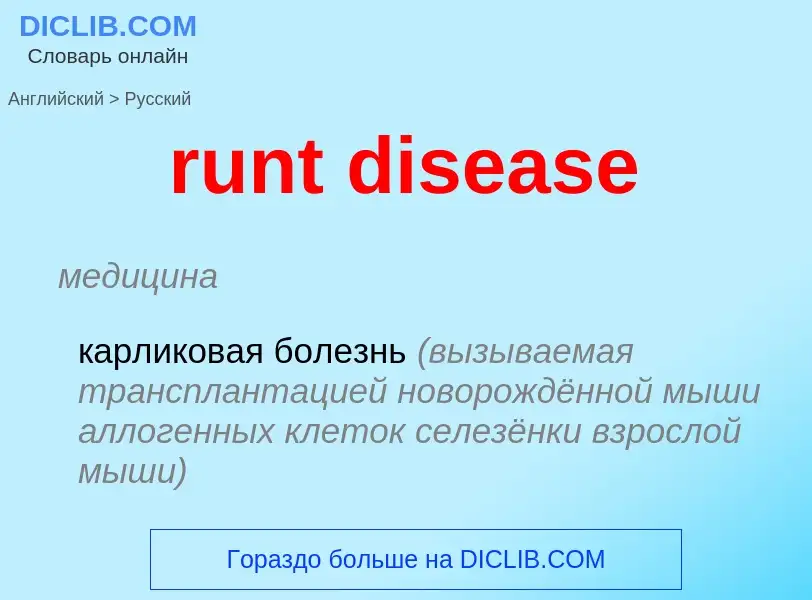ترجمة وتحليل الكلمات عن طريق الذكاء الاصطناعي ChatGPT
في هذه الصفحة يمكنك الحصول على تحليل مفصل لكلمة أو عبارة باستخدام أفضل تقنيات الذكاء الاصطناعي المتوفرة اليوم:
- كيف يتم استخدام الكلمة في اللغة
- تردد الكلمة
- ما إذا كانت الكلمة تستخدم في كثير من الأحيان في اللغة المنطوقة أو المكتوبة
- خيارات الترجمة إلى الروسية أو الإسبانية، على التوالي
- أمثلة على استخدام الكلمة (عدة عبارات مع الترجمة)
- أصل الكلمة
runt disease - ترجمة إلى الروسية
медицина
карликовая болезнь (вызываемая трансплантацией новорождённой мыши аллогенных клеток селезёнки взрослой мыши)
болезнь малорослости
общая лексика
реакция "трансплантат против хозяина"
РТПХ
медицина
вторичная болезнь
гомологичная болезнь
отторжение трансплантата
реакция "трансплантат против хозяина"
تعريف
ويكيبيديا

Graft-versus-host disease (GvHD) is a syndrome, characterized by inflammation in different organs. GvHD is commonly associated with bone marrow transplants and stem cell transplants.
White blood cells of the donor's immune system which remain within the donated tissue (the graft) recognize the recipient (the host) as foreign (non-self). The white blood cells present within the transplanted tissue then attack the recipient's body's cells, which leads to GvHD. This should not be confused with a transplant rejection, which occurs when the immune system of the transplant recipient rejects the transplanted tissue; GvHD occurs when the donor's immune system's white blood cells reject the recipient. The underlying principle (alloimmunity) is the same, but the details and course may differ.
GvHD can also occur after a blood transfusion, known as Transfusion-associated graft-versus-host disease or TA-GvHD if the blood products used have not been gamma irradiated or treated with an approved leukocyte reduction system. In contrast to organ/tissue transplant associated GvHD, the incidence of TA-GvHD is increased with HLA matching (first-degree or close relatives).




